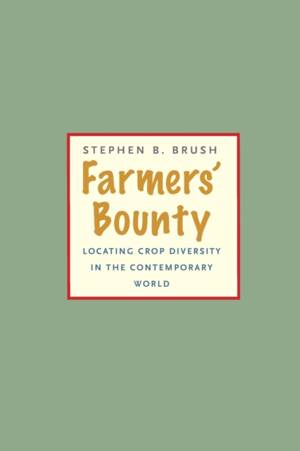
- Afhalen na 1 uur in een winkel met voorraad
- Gratis thuislevering in België vanaf € 30
- Ruim aanbod met 7 miljoen producten
- Afhalen na 1 uur in een winkel met voorraad
- Gratis thuislevering in België vanaf € 30
- Ruim aanbod met 7 miljoen producten
Zoeken
€ 74,95
+ 149 punten
Omschrijving
Biological diversity is as crucial in agriculture as it is in nature, and it is equally important to the economic health of both industrial and nonindustrial societies. This book offers a sweeping assessment of crop diversity and the potential for its preservation. Stephen B. Brush develops a framework for investigating biological diversity in agriculture that focuses on the knowledge and practice of farmers, and he shows how this human ecology perspective can be applied to three global issues that affect crop resources. Brush defines the dimensions of crop diversity and outlines the essential questions surrounding it. He describes the techniques used to maintain diversity in major crops of three cradles of agriculture in which he has worked: potatoes in the Peruvian Andes, maize in Mexico, and wheat in Turkey. Finally, he explores the policy issues surrounding genetic erosion of crop varieties, conservation of crop diversity, and ownership of genetic resources.
Specificaties
Betrokkenen
- Auteur(s):
- Uitgeverij:
Inhoud
- Aantal bladzijden:
- 352
- Taal:
- Engels
- Reeks:
Eigenschappen
- Productcode (EAN):
- 9780300207552
- Verschijningsdatum:
- 31/01/2014
- Uitvoering:
- Paperback
- Formaat:
- Trade paperback (VS)
- Afmetingen:
- 156 mm x 234 mm
- Gewicht:
- 535 g

Alleen bij Standaard Boekhandel
+ 149 punten op je klantenkaart van Standaard Boekhandel
Beoordelingen
We publiceren alleen reviews die voldoen aan de voorwaarden voor reviews. Bekijk onze voorwaarden voor reviews.











